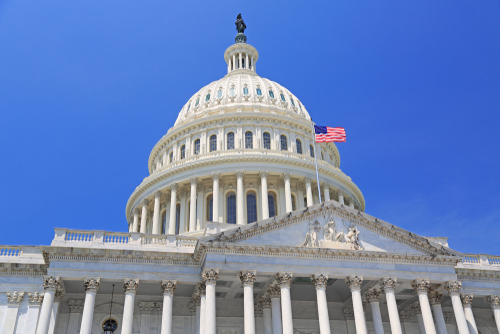Betting on papal elections, a practice rooted in history, has evolved with technology, now embracing digital platforms and igniting global discussions on faith and gambling.
At a Glance
- Betting on the next pope is increasingly popular ahead of Pope Francis’s successor’s election.
- Wagers exceed events like the Europa League, reflecting worldwide intrigue.
- The 16th-century tradition marries with modern technology and cryptocurrency.
- Controversial categories and potential gambling addiction raise ethical concerns.
Historical Roots and Modern Transition
Betting on papal succession dates back to the 16th century, originally impacting diplomatic and political dynamics. Antiquity meets modernity as this tradition morphs alongside technological advancements. The progression has enabled global participants to engage in online platforms, expanding the scope and reach of this betting practice. Odds are swiftly set for cardinals like Pietro Parolin and Luis Antonio Tagle following the announcement of a pope’s passing or resignation.
Despite historical prohibitions, such as those from Pope Gregory XIV in 1591, the 1917 Code of Canon Law relaxed these bans, permitting the practice without direct sanction. In the digital age, online platforms provide seamless, fast odds-setting, inciting a blend of fascination and controversy as betting intersects with religious observance.
The Worldwide Betting Phenomenon
People globally place bets through cash, online games, and casual wagers, with platforms noting significant activity. “There’s a huge level of interest globally,” remarked Sam Eaton. Events like the Europa League pale in comparison to the intrigue around papal elections, with promotional activities even surpassing these high-profile events. – nbcnewyork.com
Bettors evaluate cardinals’ chances on platforms like Oddschecker, which reports hundreds of thousands of visitors from 140 countries. Notably, the UK, Ireland, and US markets demonstrate substantial engagement, with £30,000 wagered in Britain alone. Despite the niche nature of papal betting, it generates tangible global interest.
Ethics and Regulatory Concerns
Betting on a solemn religious event raises ethical questions. Catholic teaching warns against gambling leading to enslavement, highlighting a potential moral dilemma. Furthermore, in countries like Italy, traditional sportsbooks prohibit such bets, though informal wagers persist. The creation of games like Fantapapa, reminiscent of fantasy sports, underscores the evolving nature of this practice. – yahoo.com
Controversial categories include bets on whether the new pope will be Black or gay, sparking backlash. These betting choices prompt wider discussions on the propriety of mixing faith and gambling, and the risk of gambling addiction remains an ongoing concern. Despite these concerns, the papal election achieved status as the most popular betting event on Polymarket, with over $6 million wagered.
Future Implications of Digital Betting
The integration of modern technology amplifies speculation. Bettors utilize rumors, discussions, and predictive analytics to refine their bets, broadening the scope of participation. Online gambling sites continue to post odds and accept wagers following significant Vatican announcements. However, regulatory restrictions, such as Polymarket’s ban in France, illustrate ongoing challenges digital platforms face in this arena. – flexi-news.com
Overall, the convergence of faith and gambling in the context of papal elections remains an intriguing mix of tradition and modernity, prompting reflection and discussion about how these practices align or conflict with personal and societal values.






